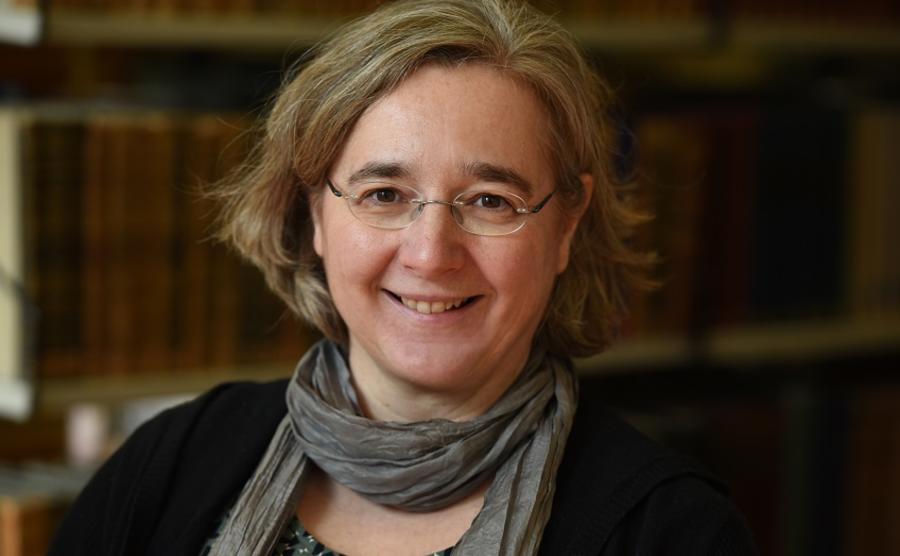Type de contenu
Professeur invitéSabine Rutar

Dr. Sabine Rutar is a Senior Research Associate at the Leibniz Institute for East and Southeast European Studies in Regensburg. She is Editor-in-Chief of the quarterly Comparative Southeast European Studies. Her main research interests are labour history, especially mining and maritime history, the history of warfare in the 20th century, comparative microhistories, as well as history politics and historical remembrance. She received her doctoral degree from the European University Institute in Florence in 2001. Presently, she is co-editing (with Anna Wylegała and Malgorzata Łukianow) No Neighbors’ Lands in Postwar Europe. Vanished “Others”; and she is completing her monograph At Work under Hitler and Tito. Mining and Maritime Industries in Yugoslavia, 1941 – 1971. Dr. Sabine Rutar will take part of the Visiting professors program designed by EHESS, upon a proposition of Dr Nathalie Clayer, of CETOBaC (Centre d'études turques, ottomanes, balkaniques et centrasiatiques)
Lectures
From a Proto-Colonial Monoindustrial Setting to Exploitation under Occupation: The Bor Copper Mine, 1935 – 1947
Dans le cadre du séminaire de Jawad Daheur, L'Europe centrale dans la mondialisation : enjeux, sources et débats historiographiques (XVIe-milieu du XXe siècle)
The copper mine in the eastern Serbian town of Bor is one of the largest in Europe. Since 1904 the copper had been extracted under the management of the French company ‘Mines de Bor’. In the interwar period, environmental pollution and severe labour conditions led to several revolts of the peasant population living in the surroundings of the mine, many of whom did seasonal work in the mine. During the Second World War, Bor was German-occupied and was the most important object of war economical exploitation in Serbia. Bor’s war history is characterized by the establishment of several huge labour camps, with several thousands of forced and obligatory labourers. After the war’s end, Bor became an important, if still monoindustrial, site of modernisation in socialist Yugoslavia.
- mercredi 9 mars 2022, de 11h à 13h - Bâtiment EHESS-Condorcet, salle A515, 2 cours des humanités, 93300 Aubervilliers
Capitalizing on Self-Management Impositions: Managers and the 1970 Dockworkers’ Strike in Koper (Yugoslavia/Slovenia)
Dans le cadre du séminaire de Nathalie Clayer, Expériences de l'espace, espaces de l'expérience dans les sociétés (post-)ottomanes
The port of Koper (It. Capodistria) in the Slovenian part of the Istrian peninsula wasbuilt in the second half of the 1950s as a socialist modernization project. In 1970, itwitnessed the only violently escalating dockers’ unrest in its socialist history. In this lecture, I take a micro-historical approach tothis incident, and view it at the historical moment in Yugoslavia between the studentprotests of 1968 and the ‘Croatian spring’ of 1971. The episode of public violence in Koper offers proof of the multi-layered nature of explanatory tropes:the border perspective from Koper is interwoven with the perspective of Yugoslavia asa whole, and a comparison with workers’ violence in neighbouring Trieste during thesame years adds yet another twist to a reassessment of the applicability of the ColdWar framework to an examination of labour relations and violence.
- mercredi 9 mars 2022, de 14h30 à 16h30 - Bâtiment EHESS-Condorcet, salle A602, 2 cours des humanités, 93300 Aubervilliers
Discussion avec Maria Todorova autour de son livre The Lost World of Socialists at Europe's Margins
Organisation : Anne Madelain et Nathalie Clayer
Avec la participation de Sabine Rutar, Jean-Numa Ducange (Univ. de Rouen), Tchavdar Marinov (Sofia) et Fabio Giomi (CNRS)
- vendredi 11 mars 2022, de 16h à 18h - Inalco, 2 rue de Lille, 75007 Paris
The “Red Coalfields”: Exploitation and Resistance in the Zasavje Region (Yugoslavia/Slovenia), 1935 – 1958
Dans le cadre du séminaire de Nathalie Clayer, Expériences de l'espace, espaces de l'expérience dans les sociétés (post-)ottomanes
Since the 19th century, the Zasavje region in Southern Styria had been Slovenia’s largest lignite extraction area, serving the northern Styrian industries around Graz and, importantly, the Southern Railway that connected Vienna with Trieste. In the time of the first Yugoslav state, during the interwar period, the region had a reputation of being a hotbed of communism. Violent clashes occured with representatives of the Serb-dominated Yugoslav state. During the Second World War, the region was German-occupied and both the coalfields and the miners heavily exploited. Living up to its reputation, partisan resistance was strong, frequently interrupting the work in the heavily guarded coalfields. After the war’s end, the communist narrative turned the Slovenian coalfields into a model industry. In 1958, then, the miners’ strike in the central coalmining town of Trbovlje triggered one of the first huge waves of labour protests in Titoist Yugoslavia.
- mercredi 23 mars 2022, de 14h30 à 16h30 - Bâtiment EHESS-Condorcet, salle A602, 2 cours des humanités, 93300 Aubervilliers
EHESS, Spring talks
Nathalie Clayer (EHESS), Experiences of space and spaces of experience in (post)Ottoman societies
Discutante : Sabine Rutar (Leibniz Institute for East and Southeast European Studies)
Séance en anglais
Dans ce séminaire, en partant de la présentation et de la discussion de recherches en cours sur l’espace ottoman et post-ottoman, on s’interrogera, à partir de différents types d’objets (trajectoires individuelles et collectives, lieux d’activités et de production), sur les pratiques et visions spatiales, mais aussi sur les évolutions des espaces sociaux et des paysages et les temporalités de ces évolutions.
- jeudi 24 mars 2022 (15h00-17h00, heure de Paris)